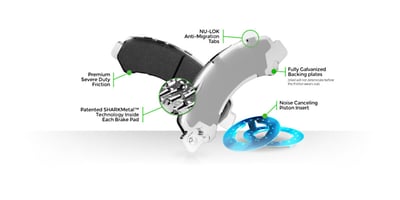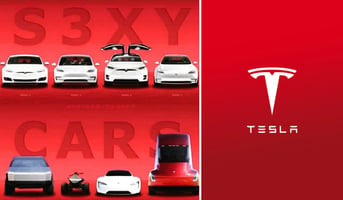To be clear, this is a significant issue for the NHTSA or national highway safety commission, and...
The Importance of a Strong Software Team in the Electric Vehicle Industry (Clone)

The world of electric cars is rapidly gaining momentum and is set to revolutionize how we think about transportation. Unlike traditional combustion engines, electric cars are more like computers on wheels, emphasizing software development. With this in mind, the importance of a strong and talented software team has never been more important. In this post, we will take a deep dive into the world of electric cars and explore the key players in software development, such as OTA updates, infotainment, and autonomous driving.

Tesla is widely regarded as the leader in the electric car industry, especially in terms of software development. Other major players, such as GM, VW, Ford, Stellantis, JLR, BMW, and Mercedes, are also heavily invested in software engineering. However, the software development teams of each company vary greatly in terms of capabilities, resources, and progress.
One key area where strong software teams are necessary in the electric car industry is OTA (over-the-air) updates. OTA allows manufacturers to provide updates and new features to cars without requiring them to return to the dealership for servicing. This is a crucial feature as it allows manufacturers to fix bugs, enhance features, and improve safety features remotely. Tesla has been the leader in OTA updates, providing them with numerous enhancements and features for their vehicles, and other automakers are playing catch up.
Another area where software development is crucial is in the realm of infotainment systems. With the rise of electric cars, the importance of infotainment systems has never been higher. Long commutes and a focus on autonomous driving mean that infotainment systems must be user-friendly with a high degree of customization and safety features. Tesla's infotainment system is one of the most advanced on the market, but other manufacturers, such as Ford and BMW, are also making large strides to catch up. The infotainment system market is valued at USD 20.91 Billion in 2021 and is expected to reach USD 36.30 Billion by 2028 with a CAGR of 8.2% over the forecast period. Source
Autonomous driving is the holy grail of the electric car industry, and software development is crucial in achieving this goal. Autonomous driving requires incredible data processing, machine learning, and software development. Tesla is once again the leader in this area with their autopilot and full self-driving capabilities. However, other manufacturers are rapidly closing the gap with strong autonomous driving teams. From Waymo to Zoox, there are plenty of AV software efforts, but integrating, tracking, and modifying that software in real-time is crucial. Outsourcing long-term to Waymo could prove problematic. As you can see below, it's not a drop in from infotainment to autonomy.
.jpg?width=800&height=791&name=Infotainment%20System%20Block%20Diagram%20(1).jpg)
According to Electrek.com, Nio and Tesla are leading the software race, but here's how everyone else is doing using their OTA capabilities are a basis:
1. Audi - As of 2022, they couldn't provide OTA's, which is not a good sign.
2. BMW - Despite being in the same bed as Toyota, or non-EV believers, they have a robust OTA platform for infotainment and ADAS.
3. BYD - They have largely been outsourcing their software development and OTA through groups like Aurora Mobile, but as of late, they are starting an in-house team, but will there still be time?
4. Fisker - Magna makes their car, but they produced Fisker AI to operate their vehicles. I can only find a little info beyond that.
5. Ford - They've had OTA's starting with the Mustang and Mach-E in 2020, but keep in mind Tesla started this in 2012.
6. GM- They introduced their first OTA in 2009, so they are ahead of most OEMs and launched Ultifi (which goes with their Ultium battery) in 2020.
7. Honda/Hyundai - both need to catch up on software with limited OTAs, but they are trying to catch up quickly in Hyundai and Genesis's cases.
8. JLR - despite being a bit behind on EV launches, their parent company Tata provides both brands, Jaguar and Land Rover, with significant software support.
9. Lucid - Publicly, they have stated that their OTAs are up and running, but privately I've heard that they made one of the best EVs ever but forgot about the software somewhat as Peter was a chief designer and not a software expert.
10. Mercedes - They offer OTAs every couple of months for new features, while Tesla does them weekly and daily, but they've partnered with Nvidia to use their AI chips to step up their game.
11. Polestar/Volvo - Both Swedish and Geely-owned brands have OTAs but are outsourcing much of their new development through Qualcomm and their cockpit platform. This will result in a good system, but again outsourcing long-term is problematic.
12. Rivian - They have OTAs daily at times and poached a lot of talent from Tesla and Google. They should excel well if market pressures don't force cuts in those teams.
13. Stellantis - As of 2021, they had a ton of EVs coming out, but they are critically behind on software development.
14. VW - under the leadership of Herbert Diess, they were the only OEM, in my opinion, trying to catch Tesla Software aggressively, but since his dismissal, they need to catch up. Source for all 14 OEMs

In conclusion, the importance of a strong software team in the electric car industry cannot be overstated. In a world where electric cars are more like computers on wheels, the need for skilled and talented software engineers, developers, and architects is crucial. Tesla is widely regarded as the leader in developing OTA updates, infotainment systems, and autonomous driving. Still, other major players heavily invest in software development, such as GM, VW, Ford, Stellantis, JLR, BMW, and Mercedes. Ultimately, a strong software team will be the key to unlocking the full potential of electric cars and driving innovation in the industry.


